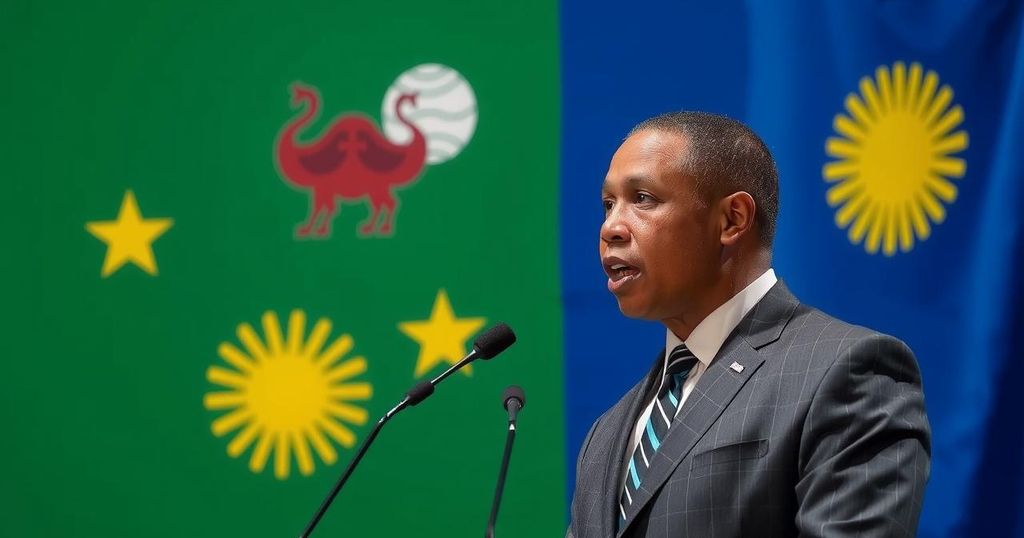Ralph Regenvanu criticized major polluters, especially Australia and the US, during the ICJ climate hearings for their inadequate response to climate change. He condemned their reliance on ineffective treaties, asserting the necessity for meaningful action and legal accountability. Regenvanu emphasized the urgent need for cooperation among nations to address the legal and humanitarian aspects of climate change.
Ralph Regenvanu, Vanuatu’s Special Envoy for Climate Change, delivered a pointed critique of major greenhouse gas emitters, specifically targeting Australia and the United States, during the International Court of Justice (ICJ) climate hearings in The Hague. He condemned these nations for their reliance on ineffective treaties that fail to instigate significant measures for emission reductions. Regenvanu emphasized the severity of climate change, characterizing it as an existential crisis impacting all nations regardless of their political or geographical status.
He articulated, “Let me be clear: these treaties are essential, but they cannot be a veil for inaction or a substitute for legal accountability. There needs to be an accounting for the failure to curb emissions and the climate change impacts and human rights violation that failure has generated.” Regenvanu expressed disappointment with the responses from Australia, the US, Saudi Arabia, and China, noting their refusal to confront the crisis or accept their responsibilities under international law.
Amidst the proceedings, Vanuatu’s argument hinges on the assertion that the damages wrought by climate change violate existing international legal obligations related to human rights and environmental preservation. Regenvanu reiterated concerns regarding the obligations of nations upon whom Vanuatu and similar countries rely for aid. He stated, “As we have argued before the Court, the conduct responsible for climate change is not just irresponsible—it is unlawful under a range of international obligations, including those under the law of the sea, human rights law, and environmental law.
The Special Envoy called upon former colonial powers like France and the United Kingdom to recognize the urgency of Vanuatu’s plight and offer support for justice against climate negligence. Reinforcing this sentiment, he articulated, “Our appeal is to all nations, especially those with the greatest capacity and historical responsibility, to align their actions with the principles of international law and the urgent needs of our shared planet.” He concluded his address with an urgent reminder: “No country can afford to keep its head in the sand any longer. The time for decisive, legally grounded action is now.”
The ongoing climate crisis represents a significant global challenge, affecting nations worldwide, particularly island nations like Vanuatu which face severe threats from rising sea levels and extreme weather events. The role of major greenhouse gas emitters in the exacerbation of this crisis has prompted international legal actions, including cases brought before the ICJ. Vanuatu has been a vocal advocate for legal accountability in climate change, asserting that the destructive impacts are not only environmental concerns but also violations of international law and human rights commitments. This context is crucial in understanding the urgency expressed by Regenvanu in his statements calling for accountability and immediate action.
In conclusion, Ralph Regenvanu’s remarks at the ICJ climate hearings bring forth a critical call to action for major polluters to confront their responsibilities in combatting climate change. His emphatic condemnation of Australia, the United States, and others highlights the inadequacy of existing treaties and emphasizes the legal obligations these nations have under international law. As Vanuatu seeks accountability and support, the time has arrived for the global community to address the climate crisis collaboratively and effectively, recognizing the urgency of the situation.
Original Source: islandsbusiness.com






